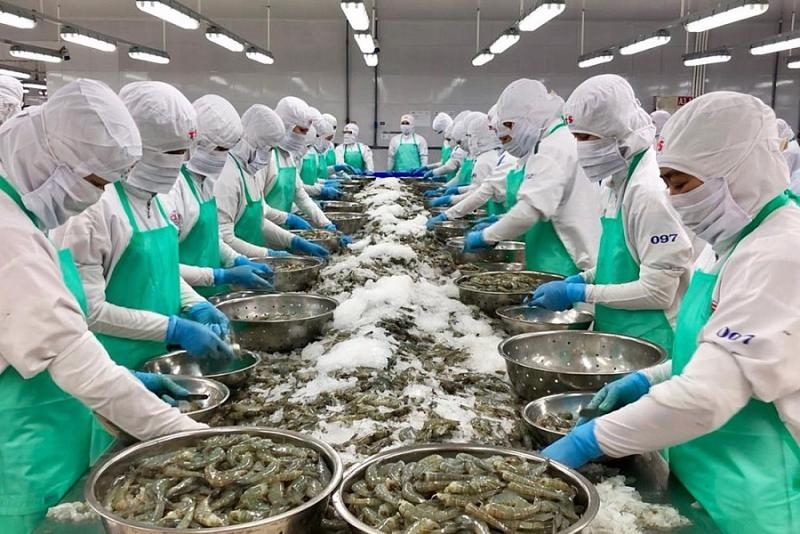Aquatic exports face fresh hurdles despite impressive performance last year
VOV.VN - Though the seafood industry witnessed impressive export growth, earning US$10 billion last year, it is likely to encounter numerous challenges to achieve its double-digit growth target in 2025 to meet the 2030 development strategy.
According to the Vietnam Association of Seafood Exporters and Producers (VASEP), in spite of difficulties from the impact caused by inflation, increased production costs, scarce raw materials for export, international competition, and climate change, the country's seafood exports brought back US$10 billion, up nearly 13% compared to 2023.
Of the figure, some products recorded high export value, including shrimp (US$4 billion, up nearly 17%); pangasius (US$2 billion, up more than 9%); tuna (US$1 billion, up 17%); and squid and octopus (over US$600 million).
Seafood exports over the past six years have grossed between US$8 - 10 billion per year, though the industry's development strategy towards 2030 outlines that the export target must be between US$14 - US$16 billion, meaning that the growth rate is maintained at between 10% and 15% per year, said Nguyen Hoai Nam, deputy general secretary of the VASEP.
Nam revealed that the global seafood consumption is forecast to reach only 5 - 6% annually, while the Vietnamese seafood industry aims to achieve double-digit export growth this year.
To achieve this goal, he said the industry is required to maintain its market share and increase value-added products, as well as developing suitable new growth model.
He went on to underscore the importance of facilitating aquaculture activities by fishermen, particularly as raw materials for export and consumption are vital and a prerequisite for growth.
To create the optimal conditions possible for local businesses, the VASEP representative recommended that the Government and relevant ministries focus on economic diplomacy activities, bilateral negotiations, and enhance trade promotion in key markets in a bid to fully tap into the advantages for Vietnamese seafood.
He underlined the need to further promote export credit and agricultural insurance, and improve the local business environment by simplifying administrative procedures and accelerating digital transformation.
Deputy Minister of Agriculture and Rural Development (MARD) Phung Duc Tien warned that the year ahead would continue to pose new challenges for the seafood industry, such as the yellow card imposed by the European Commission (EC) for illegal, unreported, and unregulated (IUU) fishing; climate change; environmental pollution; and market barriers
He emphasized the importance of improving product quality and abiding by stringent regulations relating to the use of chemicals, antibiotics, food safety, and the application of advanced technology in the production chain, along with enhancing processing activities in the direction of circulation, emission reduction, and environmental protection.
Apart from traditional markets such as China, the United States, Japan, and the EU, he advised local firms to focus on exporting to Halal markets in the Middle East and strive to promote linkages among businesses in the production chain to improve quality, ensure traceability, and increase the proportion of value-added export products.




